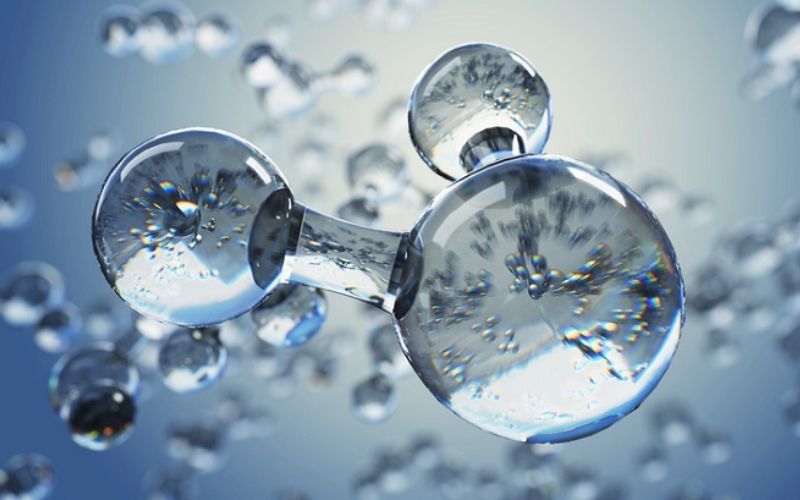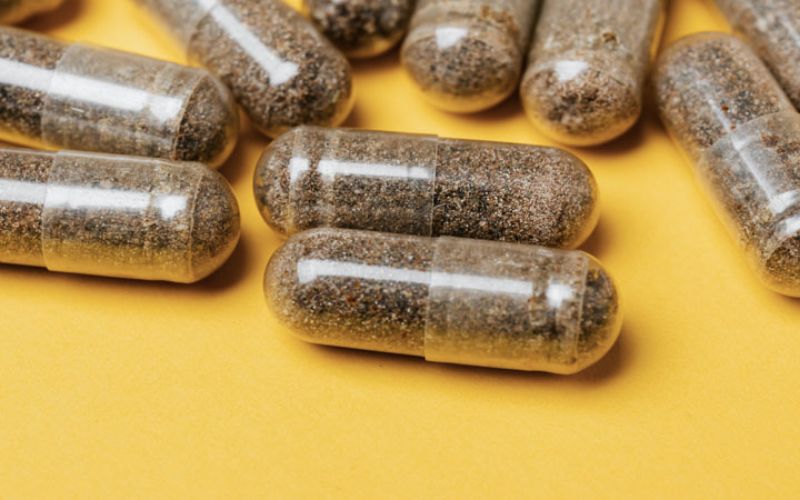L-Cystine is a popular ingredient in supplements aimed at improving hair, skin, and nail health. Let’s explore the benefits of L-Cystine and how to incorporate it into your routine.
1. What is L-Cystine?
 L-Cystine is formed through the oxidation of two molecules of L-cysteine
L-Cystine is formed through the oxidation of two molecules of L-cysteine
L-Cystine is produced by the oxidation of two molecules of L-cysteine, an amino acid containing sulfur, which plays a crucial role in forming and stabilizing the structure and function of various proteins in the body.
Additionally, L-Cystine can be used as a medication or dietary supplement to treat various conditions related to hair, skin, nails, and the immune system, while also enhancing the body’s natural antioxidant capabilities.
2. Benefits of L-Cystine for the Skin
 L-Cystine has antioxidant properties
L-Cystine has antioxidant properties
Antioxidant Properties
L-Cystine acts as a precursor in the body, capable of synthesizing glutathione, a crucial antioxidant. By neutralizing free radicals, L-Cystine optimizes the body’s ability to slow down the aging process.
Supports Skin Health and Beauty
L-cystine contributes to the formation and strengthening of keratin, a protein abundant in hair and skin, by repairing cellular damage. Furthermore, L-cystine helps reduce skin discoloration and delays the aging process, helping individuals retain their youthful appearance.
Promotes Detoxification
L-cystine is also recognized for its ability to prevent adverse effects on the skin caused by drug reactions or harmful chemicals. Additionally, it can restore glutathione levels depleted by heavy metal exposure. Therefore, proper L-Cystine supplementation significantly aids the detoxification process.
3. How to Supplement L-Cystine for Skin and Overall Health
 L-Cystine can be orally supplemented
L-Cystine can be orally supplemented
L-Cystine is available as single-ingredient or combination oral supplements. You can pair L-Cystine supplements with other nutrients such as collagen, hyaluronic acid, vitamin C, beta-carotene, or glutathione to enhance skin health and beauty.
Additionally, you can combine oral L-Cystine supplementation with topical skincare products like serums, body lotions, and creams to fortify and maximize skin protection from within.
4. Side Effects of L-Cystine
 L-Cystine may cause digestive issues
L-Cystine may cause digestive issues
Potential side effects of L-Cystine include:
- Abdominal pain, vomiting, diarrhea, heartburn, indigestion, rectal bleeding, chest pain, etc., when consuming L-Cystine in oral form.
- Runny nose or coughing up blood from respiratory tract irritation if L-Cystine is accidentally inhaled.
- Weight loss, bad breath, constipation, rashes, fatigue, and drowsiness may occur with L-Cystine use.
- Hair loss, split ends, discoloration, damage, and thinning hair may result from using L-Cystine to treat hair-related issues.
- Side effects may vary depending on individual responses and the method of administration. Thus, it is essential to consult a healthcare professional before starting L-Cystine supplementation.
Additionally, if you are scheduled for surgery, discontinue L-Cystine use at least two weeks beforehand, as it may interfere with blood sugar control during the procedure.
5. L-Cystine Dosage
 L-Cystine is not recommended for children under 7 years of age
L-Cystine is not recommended for children under 7 years of age
- For children under 7: L-Cystine is not recommended for this age group.
- For children/adolescents aged 7-14: Take one tablet daily after a meal.
- For individuals aged 15 and above: Take 2-4 tablets daily after meals.
Note: L-Cystine tablets should be taken for a maximum of 30 days at a time.
6. Precautions When Using L-Cystine
 L-Cystine should be used as directed by a healthcare professional
L-Cystine should be used as directed by a healthcare professional
- L-Cystine may interfere with diabetes ketone testing using nitroprusside reagents. Therefore, avoid taking L-Cystine if you need to undergo this specific test.
- Do not take L-Cystine if you have liver coma or severe kidney function impairment.
- Always consult a healthcare professional and follow the recommended dosage.
- Discontinue use and consult a doctor if you experience any of the side effects mentioned in Section 4.
- Ensure adult supervision and guidance if L-Cystine is administered to children.
- If you do not notice any improvements after two weeks of continuous use, stop taking L-Cystine and seek medical advice.
This article provides insights into L-Cystine’s benefits and various methods of incorporation into your routine. Stay tuned for more informative articles on common ingredients found in everyday medications!





































